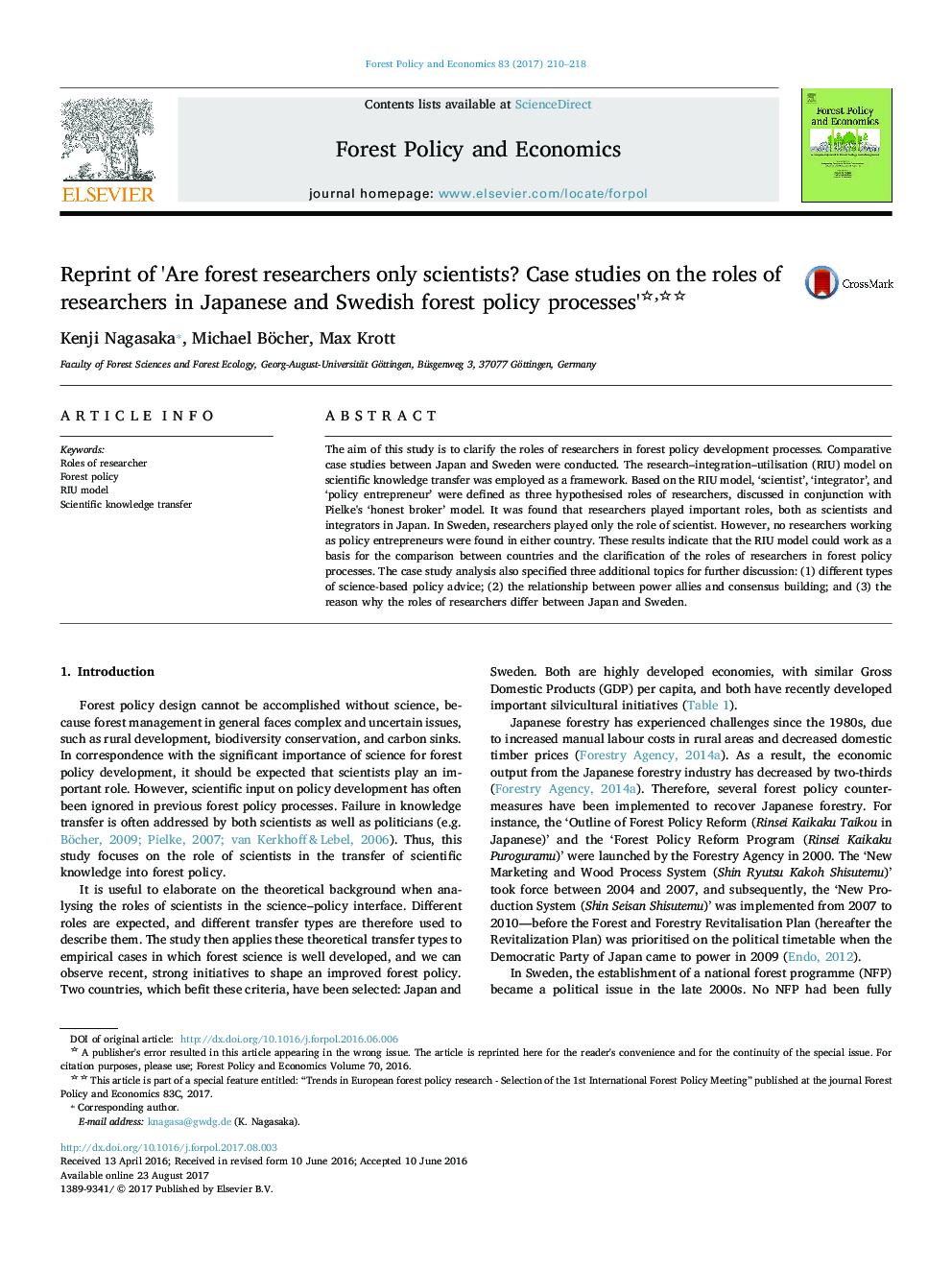| Article ID | Journal | Published Year | Pages | File Type |
|---|---|---|---|---|
| 6459704 | Forest Policy and Economics | 2017 | 9 Pages |
â¢Research-integration-utilisation (RIU) model can analyse science-policy interaction.â¢We used the RIU model and Pielke's four roles of researchers in policymaking.â¢We then categorised researchers as 'scientist', 'integrator', and 'policy entrepreneur'.â¢In Japanese forest policy process, they worked as scientists and integrators.â¢In the case of Swedish forest policy process, researchers worked only as scientists.
The aim of this study is to clarify the roles of researchers in forest policy development processes. Comparative case studies between Japan and Sweden were conducted. The research-integration-utilisation (RIU) model on scientific knowledge transfer was employed as a framework. Based on the RIU model, 'scientist', 'integrator', and 'policy entrepreneur' were defined as three hypothesised roles of researchers, discussed in conjunction with Pielke's 'honest broker' model. It was found that researchers played important roles, both as scientists and integrators in Japan. In Sweden, researchers played only the role of scientist. However, no researchers working as policy entrepreneurs were found in either country. These results indicate that the RIU model could work as a basis for the comparison between countries and the clarification of the roles of researchers in forest policy processes. The case study analysis also specified three additional topics for further discussion: (1) different types of science-based policy advice; (2) the relationship between power allies and consensus building; and (3) the reason why the roles of researchers differ between Japan and Sweden.
